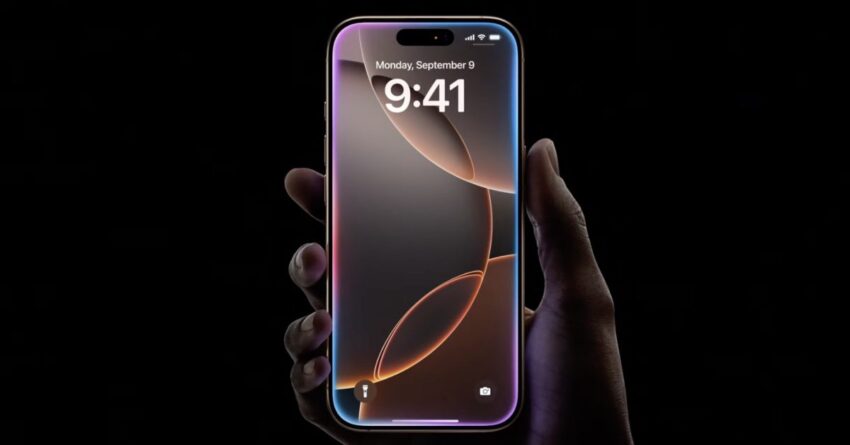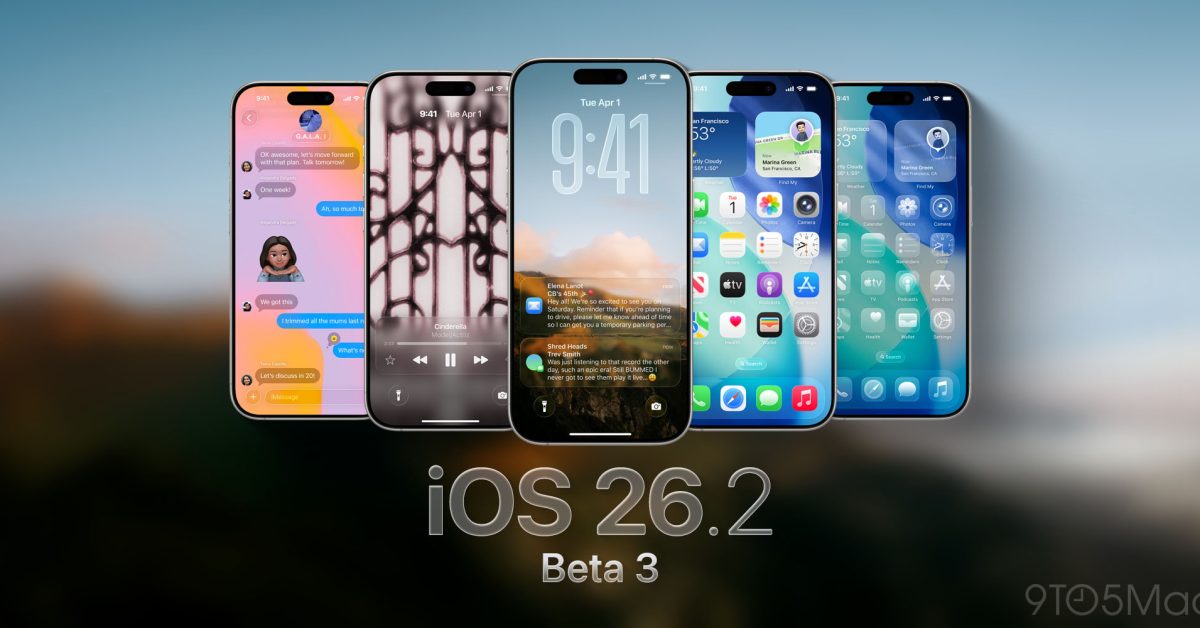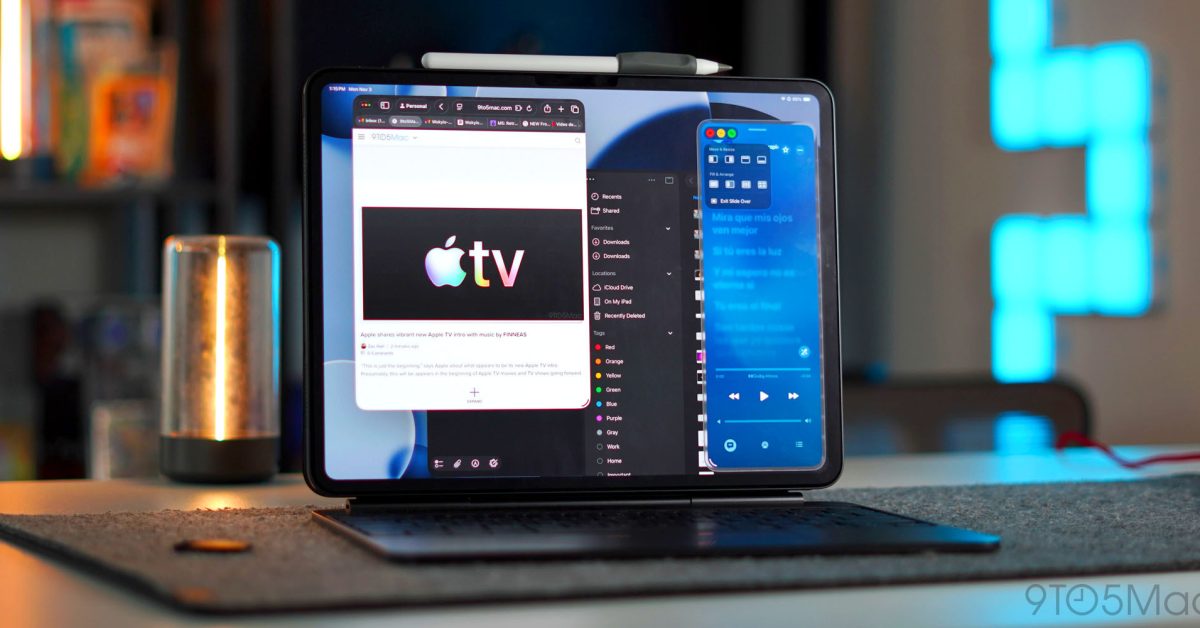
ios 26 2 leak shows iphone might Recent leaks from the iOS 26.2 beta 3 update indicate that Apple may soon allow users to replace Siri with a third-party voice assistant on their iPhones.
ios 26 2 leak shows iphone might
Overview of iOS 26.2 Beta 3
Apple’s iOS 26.2 beta 3 has been released, showcasing a variety of new features and enhancements. Among these updates are improvements to AirDrop and the Measure app, which have garnered attention from developers and tech enthusiasts alike. However, the most significant revelation from this beta version is the potential introduction of a feature that would allow users to substitute Siri, Apple’s built-in voice assistant, with a third-party alternative.
Details of the New Feature
The leaked code from iOS 26.2 beta 3 suggests that users will be able to set a different voice assistant as the default option when using the iPhone’s side button. This change marks a notable shift in Apple’s approach to voice assistants, as the company has traditionally kept Siri as the sole default option. The implications of this feature could be substantial, particularly for users who prefer the functionalities and capabilities of other voice assistants.
Context and Background
Voice assistants have become an integral part of the smartphone experience, with many users relying on them for a variety of tasks, from setting reminders to controlling smart home devices. Siri, launched in 2011, has evolved over the years but has faced criticism for its limitations compared to competitors like Google Assistant and Amazon’s Alexa. The introduction of a feature allowing users to replace Siri could be seen as a response to this criticism and a move to enhance user satisfaction.
Potential Implications of Replacing Siri
Allowing users to replace Siri with a third-party assistant could have several implications for both Apple and its competitors in the voice assistant space.
Impact on User Experience
For many users, the ability to choose their preferred voice assistant could significantly enhance the overall user experience. Some users may prefer the more advanced capabilities of Google Assistant, while others may find Alexa’s smart home integration more appealing. By enabling users to select their default assistant, Apple could cater to a broader audience and improve customer satisfaction.
Competitive Landscape
The voice assistant market is highly competitive, with several major players vying for dominance. By allowing third-party assistants to be set as defaults, Apple may inadvertently strengthen its competitors. Google and Amazon have invested heavily in their voice technologies, and this move could provide them with an opportunity to gain more traction among iPhone users.
Developer Reactions
Developers have expressed mixed feelings about the potential change. Some view it as a positive step towards greater flexibility and user choice, while others are concerned about the implications for app development and integration. If users can easily switch to a different assistant, developers may need to rethink their strategies for building voice-enabled applications.
Technical Considerations
Implementing a feature that allows for the replacement of Siri as the default assistant is not without its challenges. Apple will need to ensure that the integration of third-party assistants does not compromise the overall performance and security of the iOS ecosystem.
Security and Privacy Concerns
One of the primary concerns surrounding the introduction of third-party voice assistants is the potential impact on user privacy. Apple has long positioned itself as a champion of user privacy, and allowing third-party assistants could raise questions about data security and user information handling. Apple will need to establish stringent guidelines and protocols to ensure that user data remains protected.
Integration with iOS Features
Another technical challenge lies in the seamless integration of third-party assistants with existing iOS features. Siri is deeply embedded in the iOS ecosystem, providing functionalities such as sending messages, making calls, and controlling smart home devices. For a third-party assistant to effectively replace Siri, it must be able to perform these tasks with equal or greater efficiency.
Market Reactions and Stakeholder Perspectives
The potential for users to replace Siri with a third-party assistant has elicited a range of reactions from various stakeholders in the tech industry.
Apple’s Position
Apple has not officially commented on the leaked information from iOS 26.2 beta 3. However, the company has historically emphasized user choice and customization. If the feature is confirmed, it could be seen as a strategic move to align with these values while also addressing user feedback regarding Siri’s limitations.
Responses from Competitors
Competitors like Google and Amazon are likely to view this development with interest. Both companies have invested heavily in their voice assistant technologies and may see this as an opportunity to expand their user base among iPhone users. Marketing strategies may shift to highlight the advantages of their respective assistants in light of this potential change.
User Sentiment
User reactions to the news have been largely positive, with many expressing excitement about the possibility of having more control over their devices. Social media platforms have seen discussions about the potential benefits of using alternatives to Siri, with users sharing their preferences for Google Assistant and Alexa.
Future of Voice Assistants on iOS
The introduction of a feature allowing users to replace Siri could signal a broader trend in the tech industry towards increased customization and user choice. As voice technology continues to evolve, companies may need to adapt to changing consumer preferences.
Potential for Further Customization
If Apple successfully implements this feature, it could pave the way for additional customization options within the iOS ecosystem. Users may eventually have the ability to choose not only their voice assistant but also other features and functionalities that suit their individual needs.
Long-Term Industry Trends
The move to allow third-party assistants could also reflect a larger trend towards interoperability among devices and platforms. As consumers increasingly seek seamless experiences across their devices, companies may need to prioritize compatibility and integration to remain competitive.
Conclusion
The potential for iPhone users to replace Siri with a third-party assistant marks a significant development in the ongoing evolution of voice technology. As Apple continues to refine its offerings, the implications of this change will likely resonate throughout the tech industry, influencing user behavior, competitive strategies, and the overall landscape of voice assistants.
Source: Original report
Was this helpful?
Last Modified: November 18, 2025 at 11:40 am
5 views















